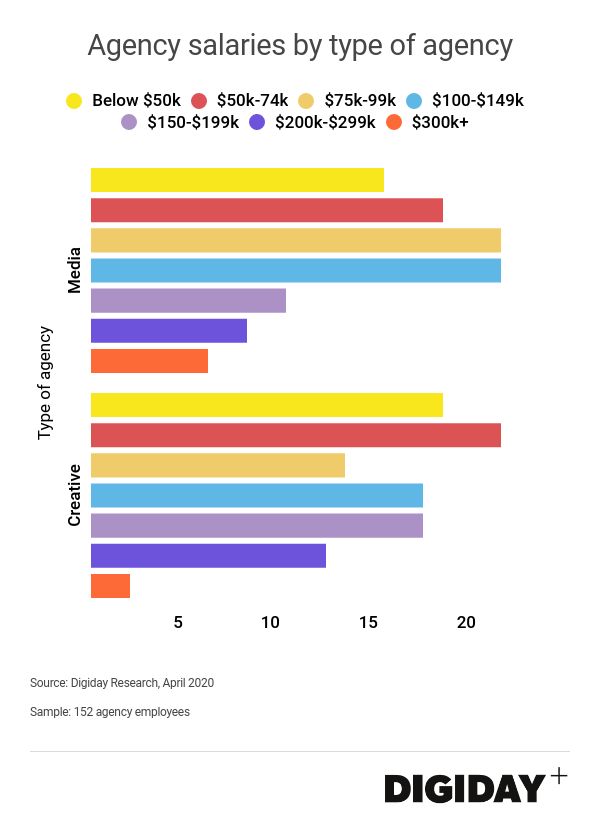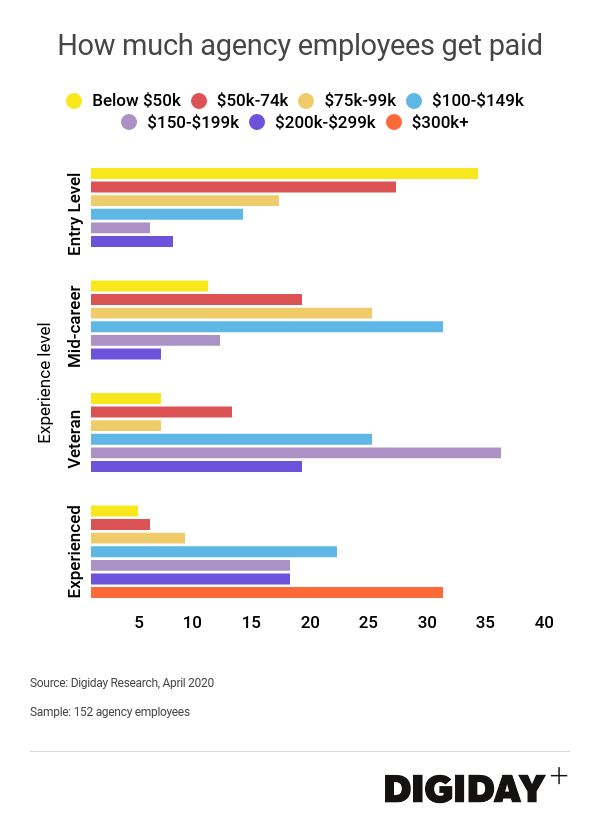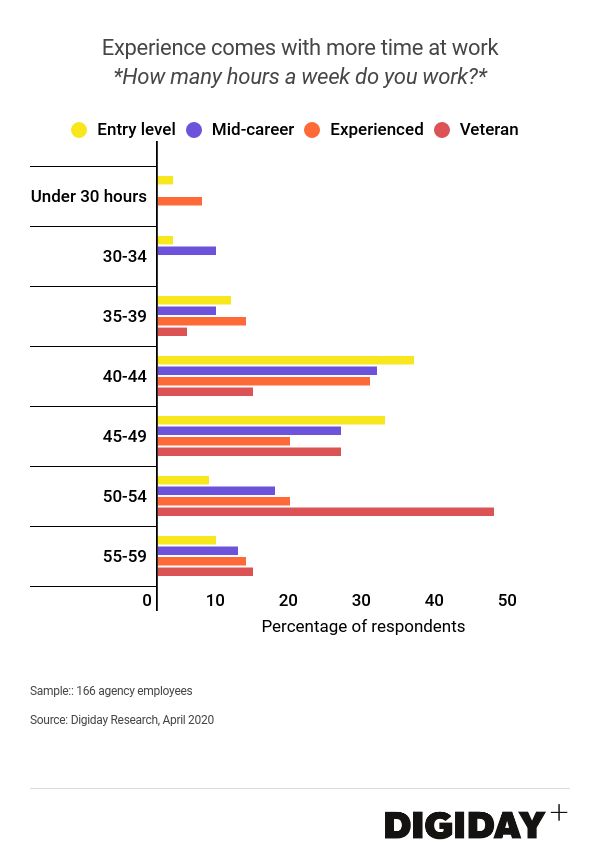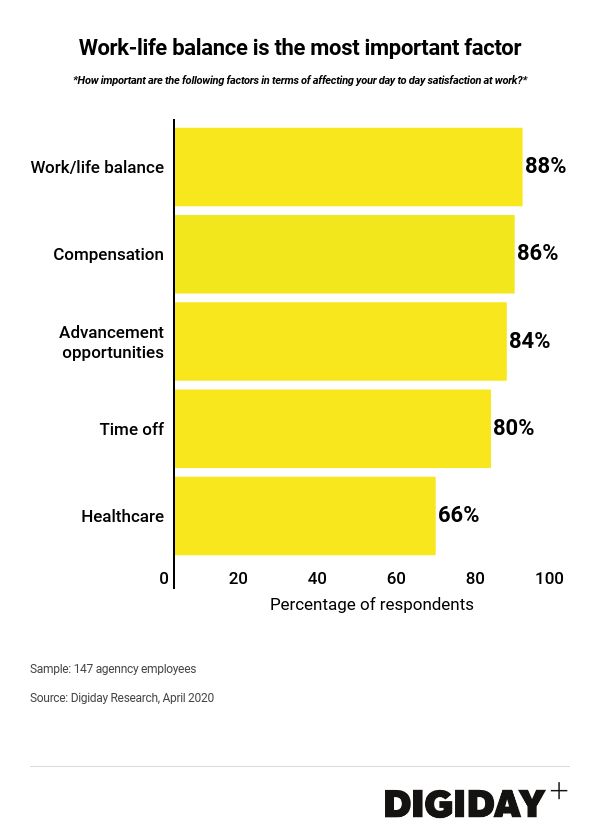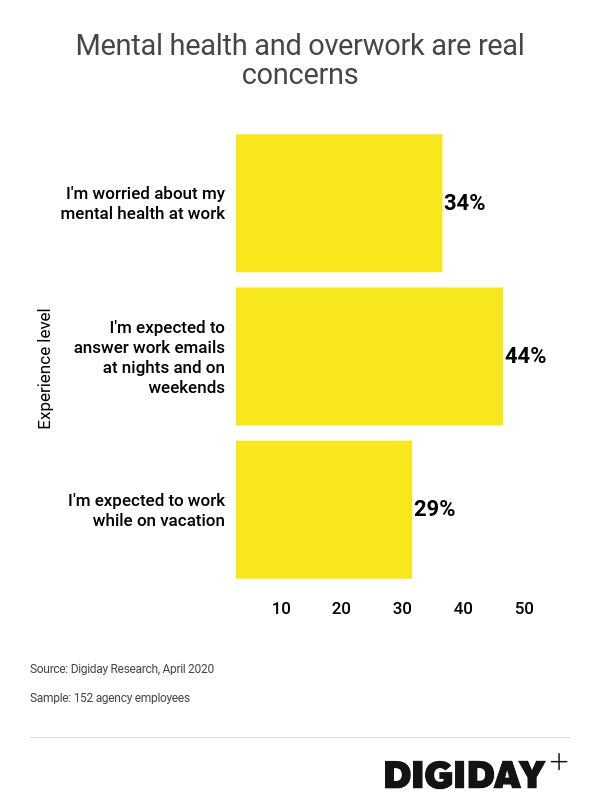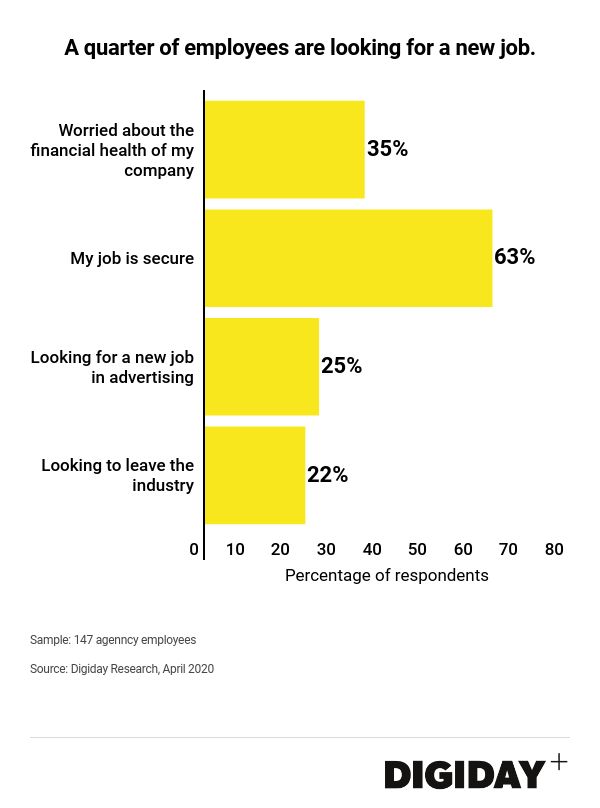Secure your place at the Digiday Media Buying Summit in Nashville, March 2-4
Digiday Research Report: Ad agency employees are overworked and underpaid

The industry is moving towards a dangerous direction.
Long work hours, a lack of work-life balance, low levels of career advancement opportunities inside agencies are leading to more people looking for a new job and more mental health and burnout concerns.
Digiday’s annual research survey about agency work, life and culture found that:
1. Agency employees are working longer hours and believe they’re underpaid
2. They prize work-life balance above all
3. A quarter of them are looking for a new job
People are working longer hours, and they believe they’re underpaid.
Salaries have remained an issue in the agency industry for a long time. Because of the way most ad agencies are compensated by clients, there has been a downward pressure on both fees — and so salaries — that has led to in parts of the industry a talent crisis.
This dynamic appears to be worsening. This survey has found that 58% of agency staffers say they are compensated fairly. Last year, the same survey found that 62% of agency staffers said they believe they are paid fairly for the work that they do.
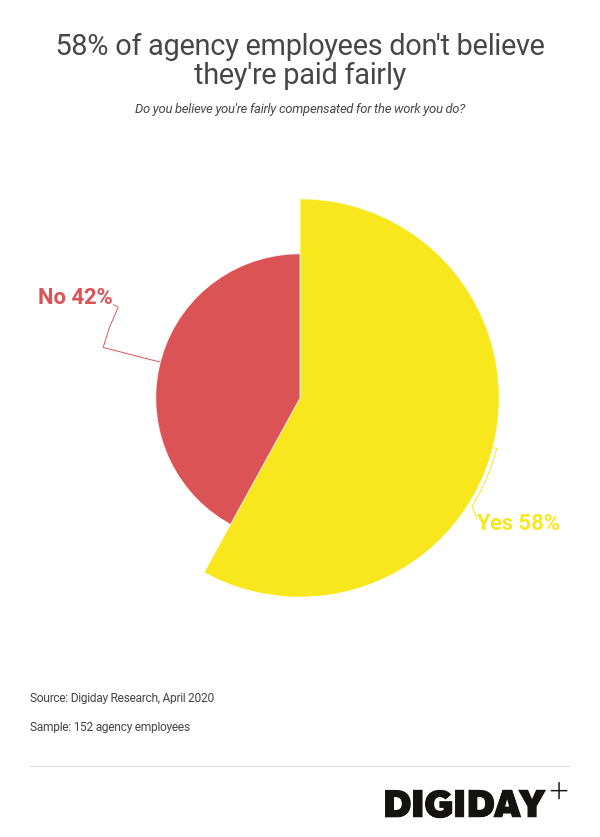 The results differ slightly between men and women. About 60% of men say they’re compensated fairly, compared with 55% of women.
The results differ slightly between men and women. About 60% of men say they’re compensated fairly, compared with 55% of women.
The least experienced cohort (those with under four years of experience) were likelier to think their pay wasn’t fair. 57% of entry level workers, compared with about 32% of mid-career and 33% of experienced workers, said they weren’t being compensated fairly.
Agency employees work mostly between 40 and 49 hours a week.
But those with more than 15 years of experience work longer: More than a third of employees with more than 15 years of experience work over 50 hours a week. And almost half — 46% — of employees with more than 20 years of experience work over 50 hours a week.
Media agency employees tend to work less than their creative agency counterparts.
Americans are overworked, of course: Anything about 40 hours a week is defined as “overwork,” per most studies. Gallup this year found that the average number for office jobs is 47 hours per week.
What’s really important to people?
People don’t think they’re paid enough. And they’re also working, quite a lot. Those two findings combined are especially illuminating when you look at what people are most preoccupied with when it comes to their work lives, and what they think is most important.
Compensation ranks highly among agency employees, as is to be expected. About 86% of employees say it ranks as extremely important. But 88% of them said it was actually work-life balance.
And that work-life balance call isn’t really being answered.
Vacation and overtime work is a problem: 44% of employees said they’re expected to work on nights and weekends, and 30% are expected to answer emails or work on vacation.
More than a third of employees are now worried about their mental health at work. That’s in line with last year when about 32% of agency employees said they were worried about it.
Business problems
The financial health of their companies is a problem for a third of people. Agencies have gone through a period of tumult recently. Factors like more work moving in-house, squeezed fees and razor-thin margins don’t help. Now, with the threat of the coronavirus spreading across the world and an impending economic downturn, uncertainty is even higher. Ad spending is expected to be cut, sales forecasts will be missed. As one agency exec said recently, worrying about jobs is not really a new feeling, but it’s become more apparent recently: “Everyone is nervous about their jobs. Working at an agency is like Lord of the Flies right now. Everyone is so worried about their job they’re not doing the work,” this person said.
About 63% of employees feel their jobs are secure; 25% of agency employees are now looking for a new job within advertising, while over a fifth are looking to leave the industry.
So where will they go?
Career advancement is a concern for 84% of people, who rank it as very important in their lives. This is where indie agencies seemingly are more attractive to people.
About 40% of employees said indie agencies offer the best opportunities for career advancement, compared with the 22% that ranked holding company-owned agencies and in-house agencies as the best. 16% of people said consultancies offered the best opportunities to advance their careers.
And 42% of people, asked where they plan to be working in the next year, said it would be indie agencies.
This is in line with last year, where the type of agency people worked in had real effects on their happiness levels. Last year, 70% of people at independent agencies said they are happy, while just 53 percent of those at agencies owned by holding companies said the same. This year, fewer people are happy, but the difference is still vast between indie and holding company agencies.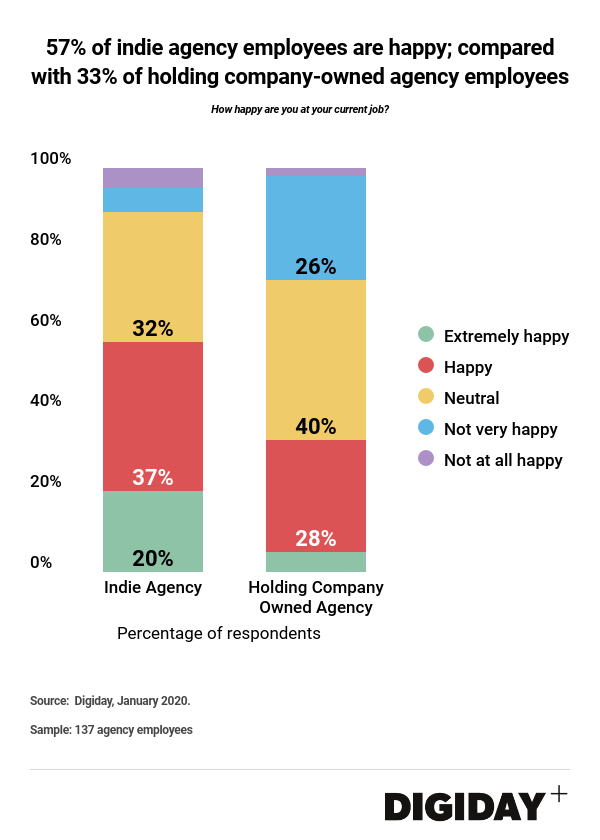
More in Marketing

Thrive Market’s Amina Pasha believes brands that focus on trust will win in an AI-first world
Amina Pasha, CMO at Thrive Market, believes building trust can help brands differentiate themselves.

Despite flight to fame, celeb talent isn’t as sure a bet as CMOs think
Brands are leaning more heavily on celebrity talent in advertising. Marketers see guaranteed wins in working with big names, but there are hidden risks.

With AI backlash building, marketers reconsider their approach
With AI hype giving way to skepticism, advertisers are reassessing how the technology fits into their workflows and brand positioning.
